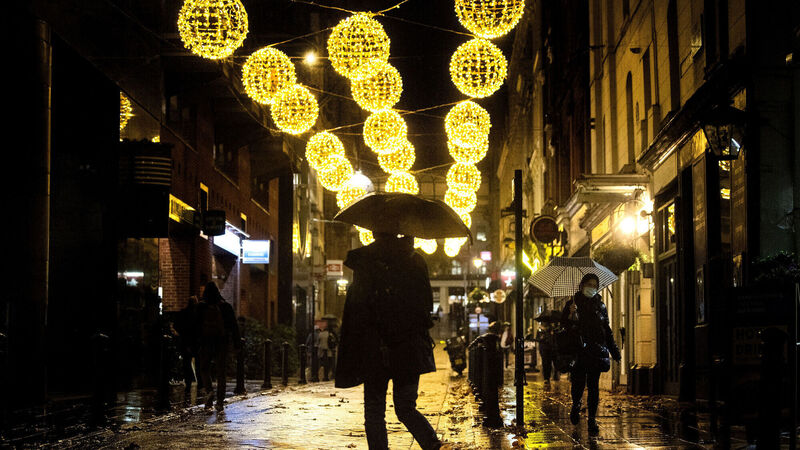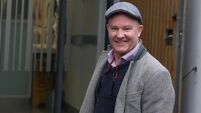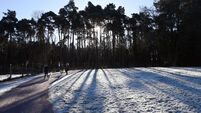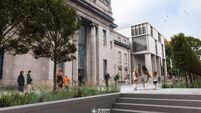'Nothing inevitable' about post-Christmas Covid-19 surge, says CMO

Dr Tony Holohan says the lower the cases are in the run-up to Christmas, the better.
The Chief Medical Officer says there is "nothing inevitable" about a third wave of Covid-19 after Christmas.
New guidelines on how people can socialise over the festive season, while keeping the virus at low levels, is currently being drawn up by National Public Health Emergency Team (Nphet).
A further 270 cases of the virus were confirmed last night with one additional death while the estimated 14-day incidence has fallen to 161 per 100,000.
The current Level 5 measures are due to expire on December 1, with fears over another spike in cases when restrictions are relaxed.
Dr Tony Holohan says the lower the cases are in the run-up to Christmas, the better.
"We have work to do with strengthening our public health system and responsiveness of the public health system.
"If we can do that and if the public can maintain a continuing very high level of compliance with the advice that is in place, there is nothing inevitable about a third wave.
"We can influence when it happens and we can influence how significant it is and we can influence how quickly it happens."
Dr Holohan suggested Christmas drinks in pubs won't be recommended when Level 5 is lifted.
"That is not the advice I anticipate giving and I'm not going to start speculating any further than that on exactly what we are going to say.
"We are going to give what we think is the appropriate advice in terms of what we think is safe and effective measures that we think we can adopt."
The World Health Organisation’s Covid-19 envoy, Dr David Nabarro has said that everyone could celebrate Christmas, and he wanted them to do so, but it was important to do so in a way that did not spread the virus.
People could enjoy life and have fun, but they also needed to observe good hand hygiene, wear face masks and practice social distance, he told RTÉ radio’s Morning Ireland.
An infectious diseases specialist says the government must change how we emerge from lockdown to ensure another surge doesn't happen.
Jack Lambert, professor of medicine and infectious diseases, says we cannot make the same mistakes that were made earlier this year.
He said we must ensure that all of the restaurants, hotels and places where people are doing business are Covid-safe and Covid-prepared.
Yesterday saw some positive news in terms of a vaccine for the virus as Pfizer said their Covid-19 vaccine was more than 90% effective in preventing the coronavirus among those without evidence of prior infection.
Dr Nabarro welcomed the Pfizer announcement but he warned that it would be some time, probably next year, before it became widely available.
“We are being given advance warning of something brilliant, but at the same time we have to be prepared for several weeks, perhaps even months more work before the vaccine or a vaccine like it can become available for people.” It was also important that there be a number of vaccines, he added.
“You don't really know how long protection lasts until you've been able to study vaccinated people over time, it's a bit early to say whether this vaccine gives protection for weeks and months or even years.”
Dr Cillian de Gascun, from the National Virus Reference Laboratory, says more concrete data is needed to back up the claims.
"I think there is a huge amount of focus in the scientific community and in the general population about the race for a vaccine.
"So if there are positive stories that companies can give then I think it is probably useful to do that.
"But I think it is really important that there is a very short timeframe between the press release and the actual scientific data."





